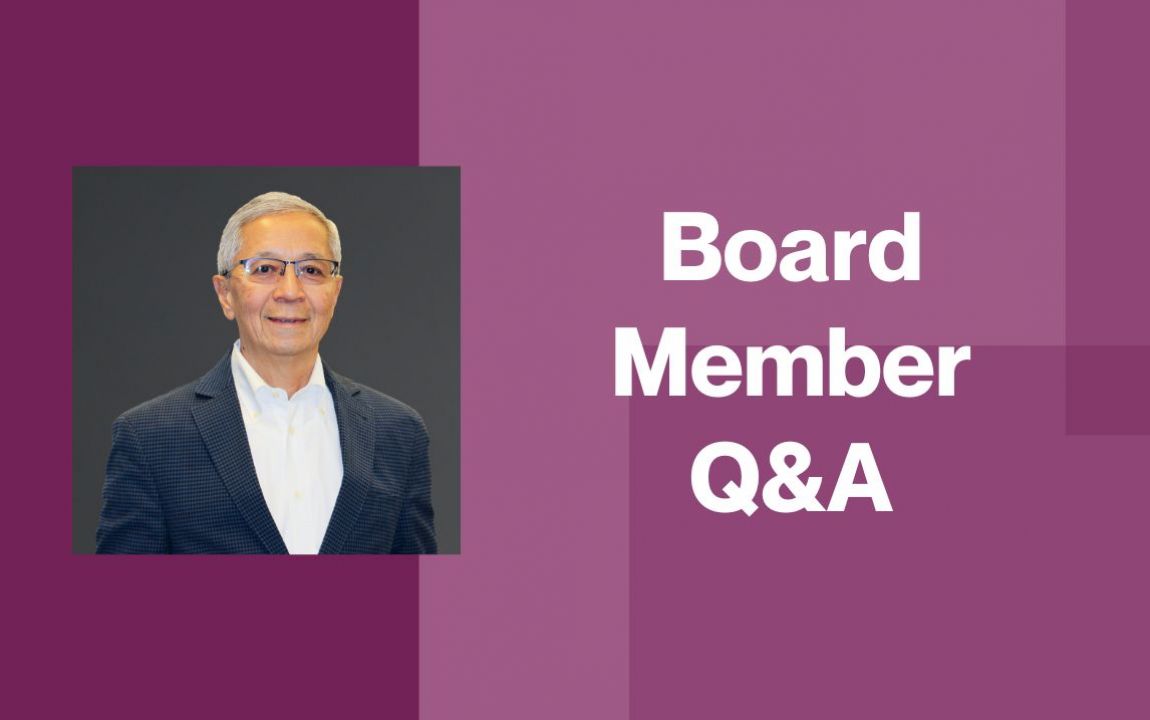1975–1984: Redefining Refugee Resettlement
Welcome to the seventh installment of our series “100 Years of Welcome: Commemorating IINE’s Boston Centennial.” The previous installment, “1965-1974: Welcoming the World,” described how hard-won reforms to the U.S. immigration system allowed the International Institute of Boston (IIB) to welcome a more diverse population of immigrants and refugees from throughout the world.
“Refugee” Redefined
1975 marked the official end to the Vietnam War, which had raged for thirty years. Its long aftermath would drive hundreds of thousands of refugees to flee Vietnam and its surrounding countries. This mass displacement caused by a war in which the U.S. had been centrally involved led to major changes in federal policies towards refugees—and in response, major changes to the scope and model of the International Institute of Boston.
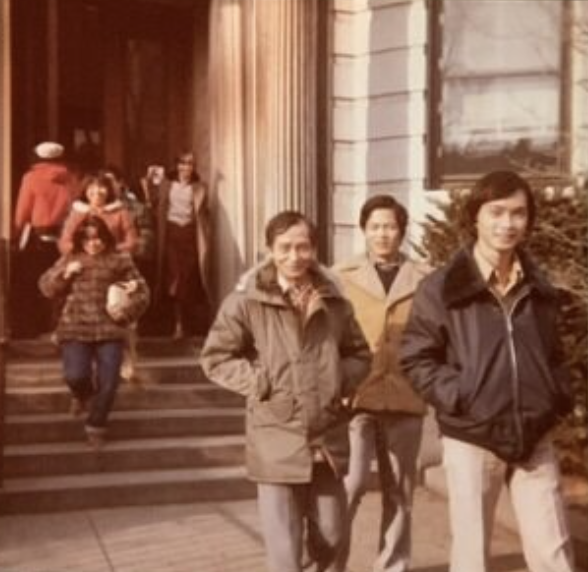
The United States welcomed almost one million refugees over the course of ten years after the Vietnam War, and the Boston area was a primary destination. IIB helped new Vietnamese arrivals resettle in Chinatown, Allston/Brighton, East Boston, the Fields Corner section of Dorchester, and later, in the suburbs of Quincy, Randolph, and Malden.
The first group of refugees were mainly officials from the defeated South Vietnamese government. A much larger wave began to arrive in Greater Boston between 1978 and the mid-1980s, after Vietnam invaded Kampuchea (Cambodia) in 1979 and the genocidal “killing fields” that followed. At the same time, a border war between China and Vietnam led to a mass exodus of Vietnam’s ethno-Chinese population, most of whom fled in small leaky boats in terrifying conditions.
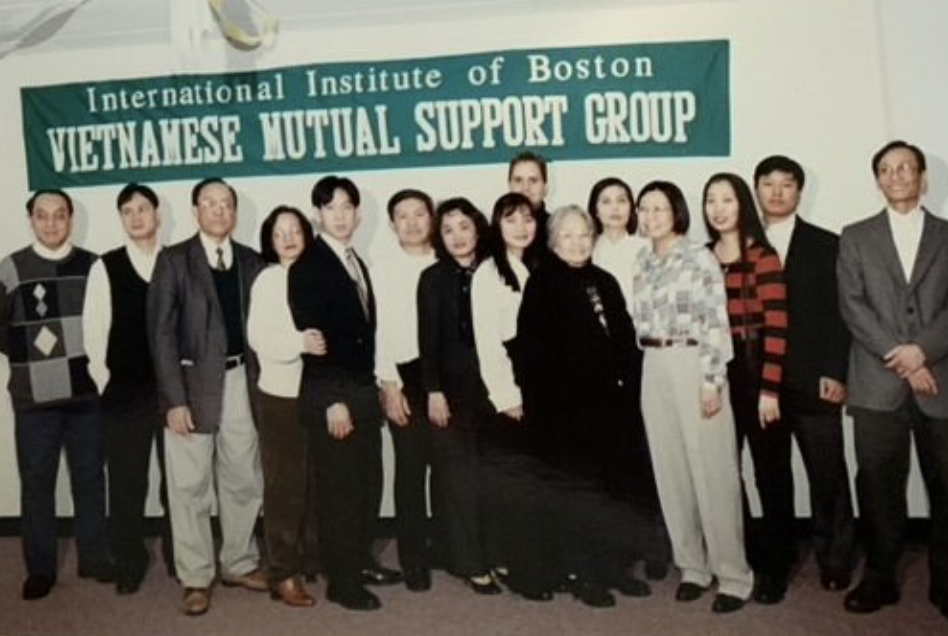
A series of new federal laws authorized increased refugee admissions, but the most transformative was the Refugee Act of 1980. This law adopted the United Nations definition of a refugee as any person who is outside their country of nationality or habitual residence and is unable or unwilling to return due to “a well-founded fear of persecution on account of race, religion, nationality, membership in a particular social group, or political opinion.”
The Refugee Act raised the annual ceiling for refugee admissions to 50,000 and gave the United States Executive Office the authority to admit additional refugees in response to emergencies. It also created a federally funded Office of Refugee Resettlement to work with states to fund and administer post-resettlement services through a network of local organizations, including the International Institutes. This relationship still drives much of IINE’s work today.
Scaling Up Services
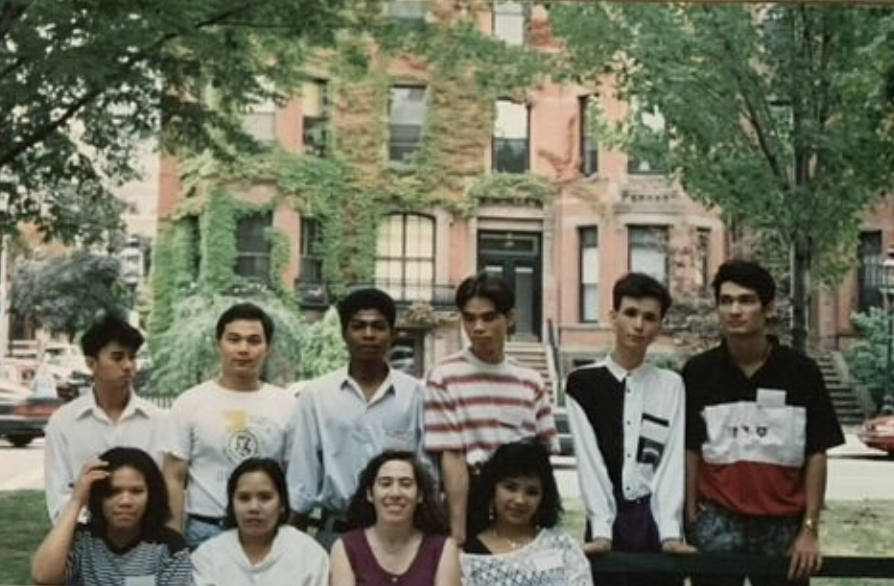
With increased federal and state financial support, IIB programs for resettlement, education, employment, and other services expanded dramatically. IIB hired several Vietnamese staff and became a sponsoring agency for resettling refugees from Vietnam, Cambodia, and Laos. It provided culturally appropriate services, including special English language programs for Asian American youth, and basic literacy classes for adults. Rooms at the IIB office at 287 Commonwealth Avenue were occupied all day and night and were partitioned off to accommodate still more classes. The number of staff and volunteers grew exponentially. IIB board members took on an active service support role, forming a Motor Corps to meet incoming planes of refugee arrivals, and provide new refugees with transportation to reach their new homes, shop for clothing and groceries, and attend job interviews. While education and direct services became the priority for IIB, a New England Indo-Chinese Refugees Association was formed to host Buddhist weddings and other ceremonies and events for IIB’s growing populations of Southeast Asian clients.
Flexing New Legal Muscle
While IIB had always provided clients with guidance on navigating complicated and ever-changing immigration laws, in the mid-1970s, IIB began hiring staff attorneys to head its Legal Services department. One of the first of these was Deborah Anker, a second generation American whose parents had escaped the Holocaust. Anker would later go on to teach the first immigration law course at Harvard University, where she founded the Harvard Immigration and Refugee Clinical Program, and still teaches law today.
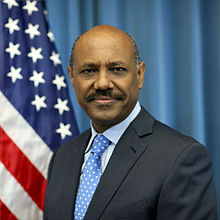
Anker began her tenure at a time when, in addition to its work with people displaced by the Vietnam War, IIB was working to welcome refugees from Ethiopia who were fleeing a violent and repressive regime whose rise ultimately led to a civil war that spread famine, poverty, and further persecution. One of the Ethiopian clients whom Anker helped to bring to Boston was Daniel Yohannes, a new American who would one day be appointed by President Barack Obama as a U.S. Ambassador to the Organization for Economic Cooperation and Development.
Leveraging New Support
In the 1980s, with more funding now available at the state level and more staff to both pursue grants and implement programs, IIB was able to launch a series of initiatives to help newly arrived refugees rebuild their lives in the mid- to long-term.
When thousands fled Cuba in the “Mariel Boatlift” exodus, IIB secured a grant from the Massachusetts Department of Social Services to establish a new multiservice center for them in the Jamaica Plain neighborhood of Boston. In its first year, the center helped more than 200 Cuban refugees, securing jobs for 110.
With other new federal and state funds, IIB created training programs and resources for teachers of English for Speakers of Languages throughout Greater Boston, started its first Adult Literacy class, created special programs to help Asian American children and their mothers, and initiated a new Social Services program emphasizing bilingual and bicultural counseling to help address the trauma experienced by refugees both as a result of and after their migration journeys.
· · ·
Today, the International Institute continues to innovate and expand programming based on the needs of new arrivals. We work with the federal Office of Refugee Resettlement and with the Commonwealth of Massachusetts to implement more than 80 federal and state contracted programs. A Staff Attorney heads our Immigration Legal Services department, which provides pro bono or low bono support to more than 1,000 refugees and immigrants each year. Program staff are trained to provide trauma-informed services, and we regularly convene peer support groups and engage with community partners to address the mental health needs of the refugees and immigrants we serve – ensuring they find safety, wellbeing, and strength as they face their new future.
During our centennial year, we celebrate 100 years of life-changing support to refugees and immigrants in Greater Boston and prepare for our second century of service. Learn more here: IINE Boston Centennial.
Related Articles
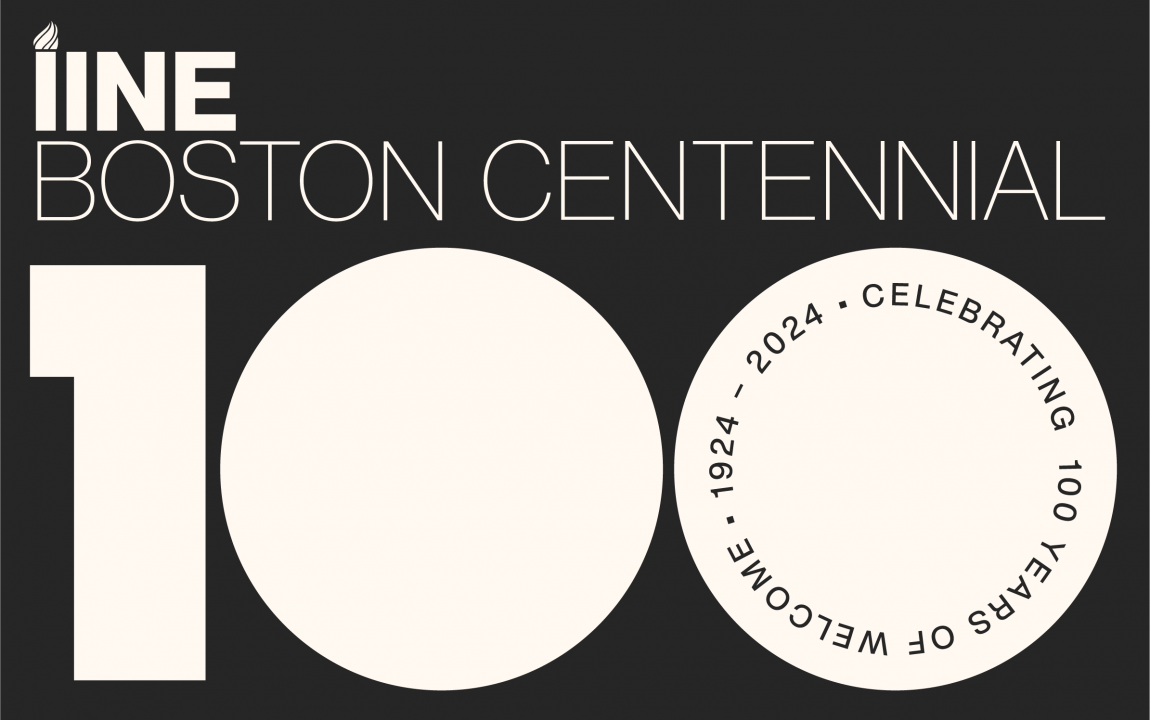
International Institute of New England to Celebrate 100 Years of Supporting Immigrants and Refugees at Centennial Golden Door Award Gala on June 4
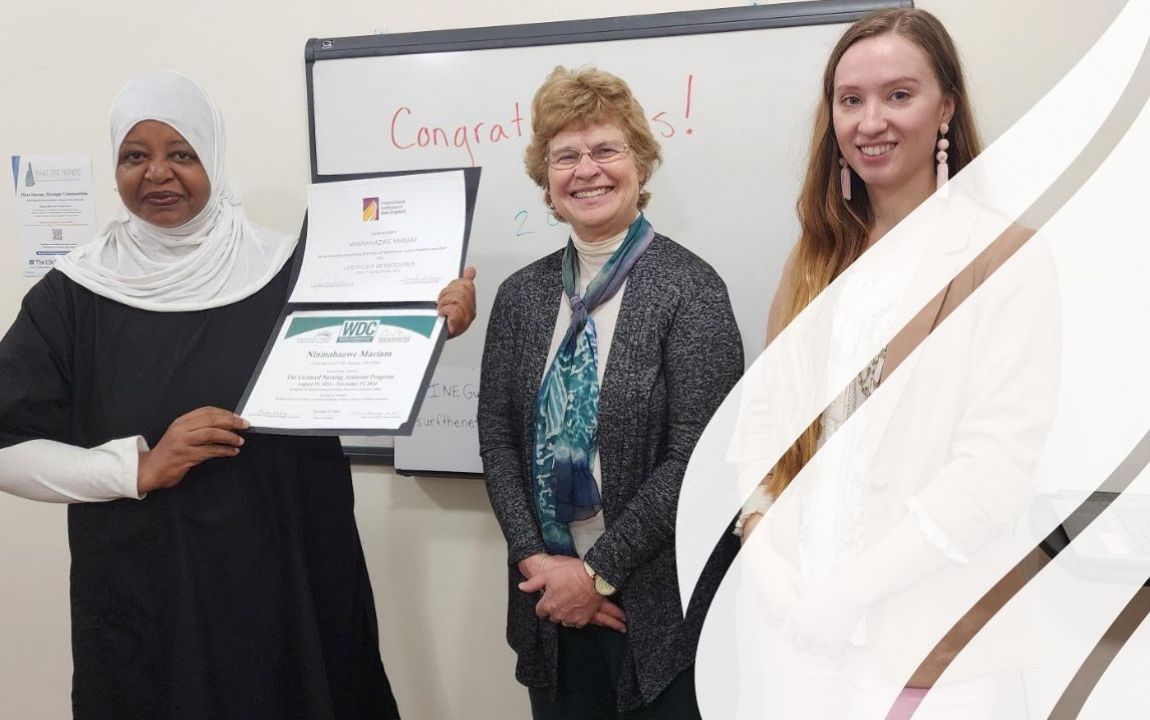
It Runs in the Family: Refugee Mother and Daughters Discover Career and Purpose in Nursing
